US Urges Iran To Free Activist Jailed For Going To Hijab Victim Funeral
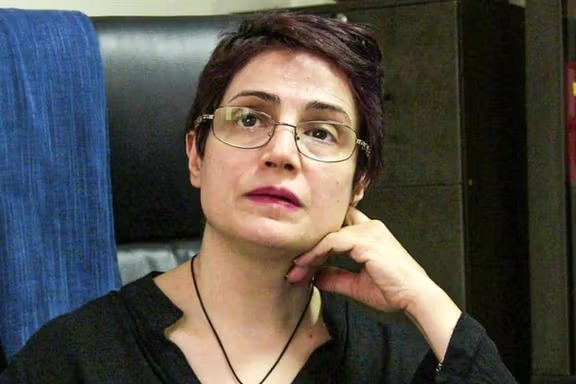
Abram Paley, the US State Department’s deputy special envoy for Iran, has called on Tehran to “do the right thing” and release detained human rights activist, Nasrin Sotoudeh.

Abram Paley, the US State Department’s deputy special envoy for Iran, has called on Tehran to “do the right thing” and release detained human rights activist, Nasrin Sotoudeh.
In his statement on X, Paley also urged the Iranian government to “cease its violence against the women and girls of Iran.”
On October 29, Iran’s security forces arrested Sotoudeh and several other activists who had attended the funeral of Armita Geravand, the latest victim of Iran’s hijab enforcement.
Armita, a sixteen-year-old girl, died on October 28 after about a month in coma for brain damage she suffered during a violent encounter with hijab enforcers deployed at Tehran’s subway stations. Her body was laid to rest at Tehran’s Behesht-e Zahra cemetery amid a heavy security presence.
Referring to the incident, Paley wrote: “Armita Geravand should be alive today.”
Meanwhile, Matthew Miller, the US State Department’s spokesperson, condemned “the Iranian authorities’ violent assault and unjust detention of several human rights defenders” during Armita’s Geravand’s funeral.
Abolfazl Qadiani (Ghadiani), an outspoken opponent of Iran's Supreme Leader Ali Khamenei, also stated that the murder of the teenage girl adds another dark chapter to the already troubling record of the regime’s leader.
Qadiani asserted, "The murder was committed by the hijab enforcers of Khamenei, the power-hungry ruler of Iran.”
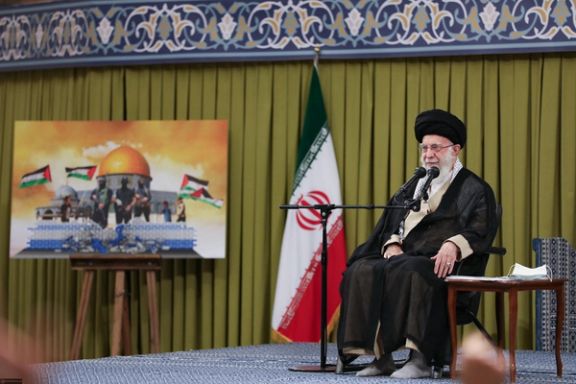
While some top Iranian officials are trying to distance Tehran from Hamas and attacks on US bases, others continue their rhetoric against Israel and the United States.
Iran’s ruler Ali Khamenei attempted to counter international reports suggesting Iran's role in organizing pro-Hamas rallies in major European and US cities during a speech on Wednesday. He humorously dismissed the claims, saying it's as if the Basij militia of the Revolutionary Guard had branches in London and Paris.
Khamenei also appealed to all Muslim countries to boycott Israel, without signaling any willingness to directly render military assistance to Hamas.
In the same speech, Khamenei even distorted Iran's modern history by denying that the seizure of the US embassy in Tehran in 1979 ruined relations between Tehran and Washington for more than four decades.
This was, of course, tantamount to admitting that anti-Israeli rallies in Iran were stage-managed by Khamenei loyalists, although the rallies have been too small to attract any media attention.
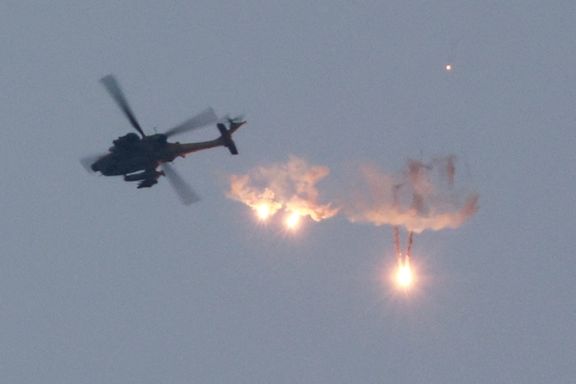
As a former military commander Ghorban Ali Salavatian observed in his tweets, "These days, the social media pages of hardliners are full of videos that show pro-Palestinian demonstrations in Scotland, Morocco, New York, Sweden, Turkey and even Denmark. In Iran some five million people have registered to go to war in Gaza but none of them would take part in a pro-Palestinian rally." He wrote in another tweet: "The reason for this is that the Iranian society has been divided into outsiders and insiders, who beat on battle drums that the unhappy outsiders refuse to hear."
He was referring to the total monopoly of power by hardliners and the increasing ideological rigidity of the regime that has further alienated a populace disgruntled by economic hardships and lack of basic freedoms.
In another development, Mahmoud Abbaszadeh Meshkini, a member of the Iranian parliament's National Security and Foreign Relations Committee, emphasized that opposing Israel's aggressions aligns with the Islamic Republic's ideals. He added that Iran and other regional states will not tolerate Israel's atrocities. Regarding US attacks on Iranian interests in Syria, he stated, "Iran will respond to these attacks globally," emphasizing Iran's strategic planning to retaliate. He concluded, "We will target the US from locations they cannot fathom."
In fact, the US conducted only one retaliatory strike against an IRGC target in Syria last week after more than two dozen drome and rocket attacks by Iran’s proxies on US bases in Iraq and Syria.
Asked how Iran is going to respond to Israel, Meshkini said, "The Islamic Republic will not reveal its secrets, but if Israel continues ground attacks on Gaza, Iran will hit Israel from somewhere Israelis cannot imagine." He was obviously talking about attacks from southern Lebanon and Yemen on the same day that missiles fired by Houthi forces in Yemen landed in Jordan rather than Israel. Meshkini then revealed what he called a secret and said that "the Houthis in Yemen, Hezbollah in Lebanon and other forces in Iraq as well as other forces in Syria are prepared to attack Israel if it crosses our red lines."
At the same time, Iran's Interior Minister Ahmad Vahidi said in an interview with reformist daily Sharq in Tehran that "The attacks on US forces in Syria has nothing to do with Iran." Vahidi added that attacks on the US forces are quite natural as Muslim nations in the region are not indifferent to the fate of the oppressed people of Palestine and fulfil their responsibilities to defend Palestinians. Vahidi further claimed that "It is the United States that has given the green light to Israel to attack Gaza and is managing the Israeli offensive."
Meanwhile, in another comment in defiance of Khamenei's more cautious posturing, Iranian lawmaker Ahmad Hossein Fallahi told Didban Iran website that "Some 150 Iranian lawmakers, many of whom are ex-IRGC officers who have fought in Syria, have expressed their readiness to be deployed to Gaza to fight against Israel."
Fallahi further insisted that Iran will continue to target US bases in Syria and the region. He said "the United States has 150 bases in the region within the reach of Iranian forces. We will target them if America makes a wrong move."

Like most teens, Iran's latest hijab victim, Armita Geravand, was an opinionated young woman who liked to defy convention, including cutting her hair short and rebelling against hijab.
Another tragic victim of state violence, Armita was laid to rest in Tehran’s cemetery after about a month in a coma due to brain injury inflicted during her encounter with Hijab enforcers deployed at the capital’s subway stations.
Two of her friends, who were denied visiting Armita in her last days at Fajr military hospital during her last days, talked to Iran International about their friend, who has been the latest martyr of Iranians' fight against the Islamic regime and its ideologies.
Fearing the wrath of the regime, all of them spoke on condition of anonymity due to the security risks involved. A high ranking police officer was always present in Armita’s room in those final days and her friends and family were neither allowed to visit nor take photos as she lay lifeless in hospital.
The Islamic Republic continues to try and exonerate its hijab enforcers from the incident to avoid the mass protests that would ensue as they did following the death to Mahsa Amini, whose death bore chilling similarities to that of Armita. Some doctored footage however, has failed to convince Iranians.
In both cases, Iranian authorities imposed a full ban on reporting about Armita's death, families intimidated into not speaking to the media.
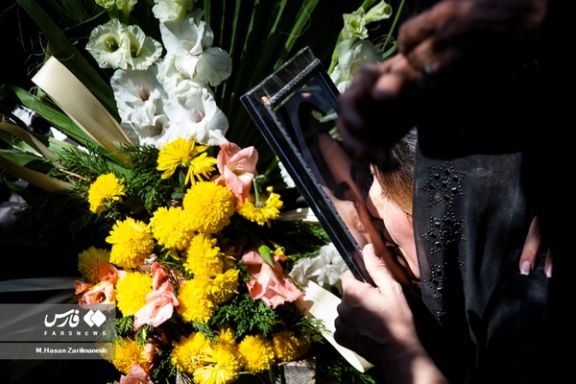
The death of Armita has reignited anti-regime sentiments with people once more chanting slogans from their rooftops and windows the night she was pronounced dead. The regime can only hope that simmering tensions do not result in a repeat of the uprising of 2022 which became the greatest challenge to the regime since its establishment in 1979.
No matter the censorship and intimidation, the public already made their minds up. One of Armita's friends, in response to Iran International's question about what they think happened to Armita, said, "The same thing that the Islamic Republic doesn't want us to say; the same thing that happened to Mahsa."
Since the day Mahsa Amini died in the hands of the regime’s hijab enforcers, a growing number of Iranian women have been defying the Islamic Republic's compulsory hijab rules. Losing control, the regime has leveled up its hijab enforcement and updated its laws to criminalize non-compliance via harsher penalties but has failed to re-establish compliance.
Another one of her friends recounted a story where Armita was confronted by a cleric asking why she was not covering her head. She boldly told the cleric, “Did I ask you why you wrapped a fabric around your head?” referring to his turban, adding, “Then, you have no right to tell me why I didn't!”
During her comatose days and after her death, tiny details of Armita’s life have been trickling online through her family and friends. The teenager, who voluntarily made all the walls of her school into amateur art, has her own room decorated with miscellaneous memorabilia. An old stamp with the photo of Iran’s last shah Mohammad-Reza Pahlavi on her wall has especially attracted the attention of Iranian royalists, who claim Armita was cognizant of Iran’s recent history.
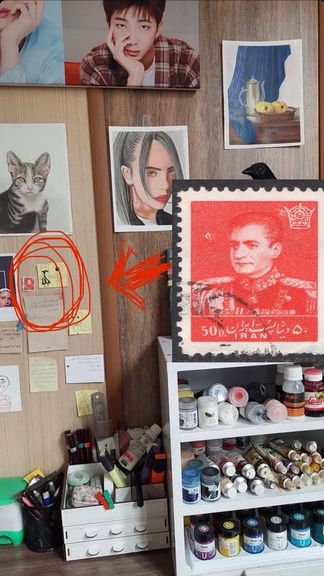
According to her friends, Armita liked horror movies, was a fan of Iran’s Reds football club and Spain’s Barcelona. Rooted in her heritage, she loved Zereshk Polo Morgh (Iranian rice with barberry and chicken) and her regular hangout was the Frost Flower (Gol-e Yakh) café at Tehran’s Pirouzi street where she lived.
It remains unknown what exactly happened on October 1 but for the Iranian public, it is a painful case of history repeating. No matter what killed Armita, she was an Iranian not represented by the Islamic Republic and the latest – but not the last -- killed for that.
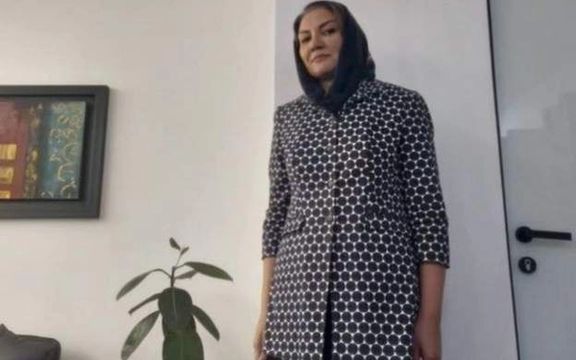
Iran's ministry of health denied entry to Haleh Hamedifard, the CEO of a prominent pharmaceutical company, due to non-compliance with Islamic dress code.
Due to attend a meeting at the ministry, the CEO of CinnaGen Company and a well-known figure in Iran's pharmaceutical industry, was refused entry based on the length of her manteau, a traditional Iranian outer garment worn by women.
In a social media post accompanied by a photo of herself wearing the manteau, Hamedifard wrote, "I was just denied entry to the ministry right now because my manteau is short. It's truly unreasonable."
Hamedifard went on to voice her anger at the way she was treated, given her position as the representative of the primary producer of medications for special cases and hard-to-treat patients. She pointed out the dire circumstances faced by patients and their families waiting for imported medicines due to shortages right outside the ministry's premises.
She thanked her male colleagues who had chosen not to attend the meeting in solidarity with her. "I love this country; it's my home, and I won't go anywhere else," she affirmed.
Hamedifard had previously won the Book of the Year award in the Islamic Republic in 1999.
The incident follows a recent case involving Fatemeh Rajai-Rad, a physician in the northern city of Amol. She was summoned to court for attending a formal event without compulsory headscarf amidst the regime's tightening of hijab laws.

Approximately 150 Iranian MPs have volunteered to serve in the Iran-backed Hamas' war on Israel which broke out on October 7.
MP Ahmad Hossein Fallahi said Wednesday that many of the current parliament members are veterans of the Iran-Iraq War, a war which ended in 1988. This would make the average age of these men at least 50.
He claimed the commanders, who have front line experience in the likes of Syria and have served in the Islamic Revolutionary Guard Corps, are willing to go to Gaza's front lines against Israel.
Those unwilling to pick up arms have also “voluntarily chosen to have deductions from their November salaries to provide financial assistance”, he said. The contributions have ranged from 50 to one billion rials, which is roughly equivalent to $100 to $2000.
Fallahi emphasized that there is no immediate need for direct military deployment by Iran, as there are already permanent Iranian military personnel in the region who are “countering aggressors”, referring to its proxies in Lebanon, Yemen and Syria which have been attacking Israel from its other borders. Meanwhile, a team of Iranian reporters has joined the Iranian Red Crescent which claims to be taking aid for Gaza via Egypt.
Meanwhile, Mahmoud Abbaszadeh Meshkini, a member of the National Security Commission of the Parliament, repeated regime warnings which have been issued since the beginning of the war, saying that if Israel continues its ground operation in the Hamas controlled strip, "the Islamic Republic may strike them in a way they had never imagined."
The Iranian regime's recent campaign to recruit fighters for the Hamas war against Israel has faced skepticism and ridicule on social media. Many Iranians view the campaign as a propaganda effort. Additionally, logistical challenges, especially for individuals with Iranian passports, make it improbable for civilians to participate in the conflict, even if the Iranian regime were to engage in it.
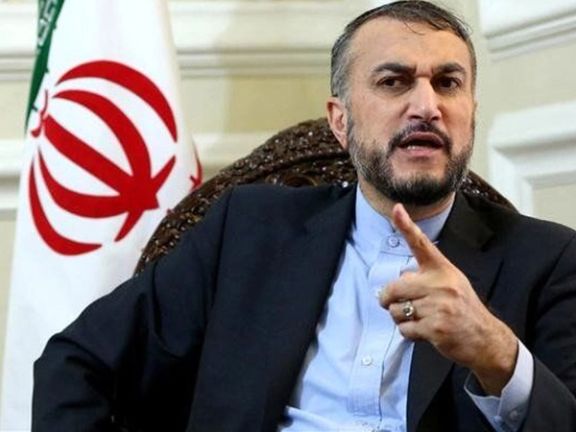
Iran's Foreign Minister Hossein Amir-Abdollahian issued another threat on Wednesday, warning that there could be "harsh consequences" if attacks on the Gaza Strip continue.
Iran has been vocal about its support for its proxy Hamas in the Gaza Strip, which declared war on Israel on October 7 when it murdered 1,400 mostly civilians and took 239, also mostly civilians, hostage. The foreign minister has said clearly that the regime has its hand on the trigger should Israel's subsequent bombardment cease.
"If an immediate ceasefire doesn't take place in the Gaza Strip and the rapid attacks by the US and Zionist Regime continue then the consequences would be harsh," he said in Ankara during a news conference in Ankara with his Turkish counterpart.
He also claimed an upcoming visit to Turkey by Iran's President Ebrahim Raisi is on the agenda. Both Iran and Turkey called for a regional conference to address what they claimed aimed to prevent the escalation of the Israel-Hamas conflict, in spite of both agitating for its escalation. Turkey's Foreign Minister Hakan Fidan emphasized the need for an immediate ceasefire to avoid further violence in the region and expressed concerns about the humanitarian impact of the conflict.
Iranian proxies have attacked US facilities in the region and its proxies in Yemen, Lebanon and Syria have fired on Israel in support of Gaza-based Hamas, designated by countries including the US, UK and Australia.